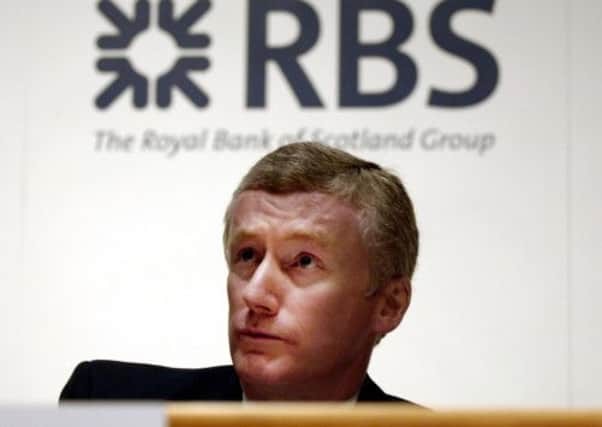The rise and fall of the ‘Greta Garbo’ of the financial crisis


Iain Martin carried out more than 80 interviews for Making It Happen, but could not secure one with the man who steered RBS towards disaster.
Goodwin decided to “shut out the world”, said Mr Martin, like the silent movie star who became a recluse in later life.
Advertisement
Hide AdAdvertisement
Hide AdThe banker’s friends told the journalist that Goodwin has decided against engaging with his critics and no longer reads books or newspapers.
That means a lot of other people were able to blame him for what happened, “fairly and unfairly”, said Mr Martin.
The author is adamant that Goodwin certainly deserves a large chunk of the blame – his mistakes were numerous and recounted in detail in the book – but he finds it very convenient for some in the Establishment that the story of the financial crisis had come down to one man.
Making It Happen reveals how Goodwin and co turned a regional bank into a titan of the financial world.
Advertisement
Hide AdAdvertisement
Hide AdIts subsequent collapse triggered a multi-billion pound bailout and helped plunge Britain into the deepest downturn in seven decades.
Mr Martin, a former editor of The Scotsman, knew Goodwin as a character around Edinburgh and became fascinated by the rise of the bank that held his first account as a teenager.
“It was a pretty safe, conservative, relatively small but important Scottish institution. Then something incredible happened.
“George Mathewson and Goodwin built it into the biggest bank in the world by balance sheet.”
Advertisement
Hide AdAdvertisement
Hide AdAs a newspaperman, he wanted to find out what happened and set about speaking to as many of the players as he could, but found lots of people afraid of court cases and potential legal action; a court battle is still to come over the rights issue.
“Lots of people were very worried,” said Mr Martin, although many opened up in private about what went on inside RBS.
The book charts Goodwin’s ascendancy as a brilliant young accountant who was talent spotted at Touche Ross by John Connolly, the future head of Deloitte (and a former senior partner of the Leeds office).
He came to the attention of National Australia Bank when carrying out due diligence on its acquisition of Clydesdale Bank in 1987.
Advertisement
Hide AdAdvertisement
Hide AdNAB wanted someone to modernise the bank and inject some urgency into its dealings and appointed Goodwin as deputy chief executive in 1995, the year it took over Yorkshire Bank.
Not being a banker, Goodwin seemed to have very little interest in things like credit and risk functions; what he was interested in were targets and numbers and projections of future growth, said the author.
He had developed a style born from working lots of late nights at Touche Ross, pushing people further and further and stress-testing their arguments, he added.
“He took that approach into banking,” said Mr Martin. “It was not about shouting at people, it was just about using logic and argument to destroy his opponents.”
Advertisement
Hide AdAdvertisement
Hide AdGoodwin soon made the top job. No-one was spared from Fred the Shred, not even “mild mannered and well adjusted” David Thorburn, the current CEO of Clydesdale and Yorkshire banks and Goodwin’s best man at his wedding, who was berated for moving a statue in one of the Aberdeen branches, according to the book.
Mathewson, then the CEO at RBS, was taken with Goodwin’s directness, ambition and analytical skills. Goodwin was hired as the heir apparent.
“George Mathewson expanded and modernised the bank, but Fred Goodwin took it to the next stage,” said Mr Martin.
They had a very nationalistic, patriotic view of the institution, almost trying to reinvent the Scottish economy through its expansion, he added.
Advertisement
Hide AdAdvertisement
Hide AdThey did the NatWest deal during the spirit of nationalist fervour that came after Braveheart, the swashbuckling Hollywood film.
Then came the deal to buy ABN Amro, which sowed the seeds for the destruction of RBS and has since gone down as the worst transaction in British corporate history.
Mr Martin describes Goodwin as a determined, extremely ambitious and very proud individual who made a lot of money.
“It’s not just about money. He was building a monument... possibly partly to himself. He was bloody proud of it,” he said.